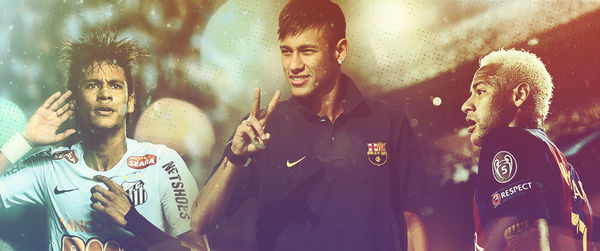Barcelona confirmed this week Neymar will sign a new five-year deal worth a reported €16 million a year. His buyout clause will start at €200 million and rise to €250 million. This is a marquee player seen as integral to their future, but did Barcelona cheat the system—and their rivals—to sign him in the first place?
On Friday, Sept. 23, Spain’s national court in Madrid reopened the case of Neymar’s 2013 transfer. Neymar, his father Neymar Sr., FC Barcelona and their former president Sandro Rosell stand accused of fraud and could face trial in 2017.
This is the full story of how Barcelona’s sensational deal to secure the most coveted young player on the planet crossed the line into scandal. It’s a tale of alleged tax evasion, corruption and tactics as elusive as Neymar is to those who try to tackle him.
CHAPTER I: The Great Denial
"Every year we must face things which aim to destabilise us."
Sandro Rosell, December 2013
Neymar da Silva Santos Jr. was unveiled to considerable fanfare at Barcelona’s Camp Nou stadium on June 3, 2013.
Barca’s then-vice-president, Josep Maria Bartomeu, said the club would pay €57.1 million for the Brazilian star. This amount would be distributed between four parties: “Santos, DIS, Teisa and another sporting consultancy.” In addition, there would be a commitment for Barca to play two friendlies against Santos, and Barca would have an option on certain Brazilian youngsters in Santos’ ranks.
Barca’s directors were ecstatic. Most of Europe’s biggest and richest clubs had wanted the 21-year-old—especially Real Madrid. Especially them. But Barca got him. What we didn’t know was how they did it.
Confusion crept in, and storm clouds soon gathered. With the deal announced at a cost of €57.1 million to Barca, Neymar’s former club Santos, along with third-party investors who owned a share in his playing rights, cried foul—saying they were not getting their fair share.
Barcelona “socio,” or club member, Jordi Cases suspected foul play. An outspoken critic of Rosell’s regime, Cases made an internal request for information but was turned down. In December 2013, the 42-year-old pharmacist brought an official legal complaint to Spain’s Audiencia Nacional court. He alleged “misappropriation of funds” in the Neymar transfer.
Rosell devoted his Christmas address to the issue. He reiterated the €57.1 million figure. And he alleged a conspiracy—tying questioning of the Neymar transfer with other alleged “external” attacks on the club: FIFA’s youth transfer investigation, a European Commission inquiry into illegal state aid, and Lionel Messi’s tax affairs.
“This is a collection of things which have all happened at once,” Rosell said. “I’d like to think this is just a coincidence; I want to believe there is no organised persecution. But every year we must face things which aim to destabilise us.”










